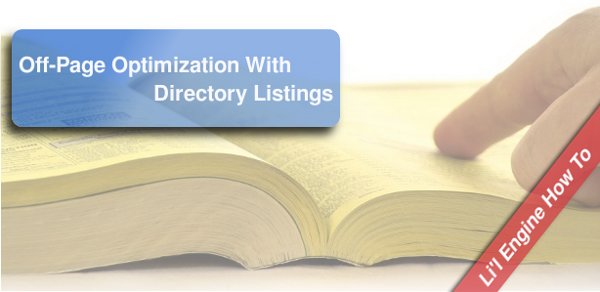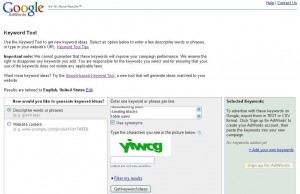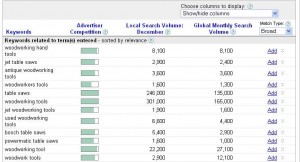Directory Submission: Waste of Time, or Great Easy Back Links?

Submitting articles to article directories is what is known as “off page optimization.” Off page optimization is doing what you can to drive traffic to and create back links to your actual web pages. The best search engine optimization involves both on page and off page optimization. Submitting articles to directories won’t help much if your pages have little or no useful content, or if your pages themselves have not been optimized through the use of keywords, meta tags, and anchor text links. But once you have your pages in top shape, submitting articles to directories can definitely give your website’s traffic a boost.
Articles promoting your website should soft sell your site. In fact, many article directories have strict rules about how many so-called self serving links you can include in your articles. That’s because people don’t look for articles in order to be sold a piece of software or a new nutritional supplement: they read articles to gather information. Your job is to provide that information and also provide a way for the article reader to get to your site if he or she so chooses.
Even the article directories that are quite strict about links to your website in the content do provide “about us” boxes or “resources” boxes where you can include links to your site, and you should definitely do this. Anyone interested in the article content enough to want more will be looking to the resources box to link to more information. Because there are so many free article submission directories, you have plenty of outlets for articles about your site. You won’t have a huge influx of traffic overnight, but over time, your PageRank will increase, as will your traffic. Below are several of the advantages and a few disadvantages to directory submission of articles.
- Directory submissions help paint you as an expert in your field. If your site sells woodworking supplies, then articles about specific woodworking techniques or projects will help you gain a reputation as an expert, particularly if you submit articles to several directories. As your reputation grows, so will your site traffic. As an additional benefit, many of your readers may create links from their website to yours, meaning you end up with more back links than you put into the articles themselves.
- Most article submission directories are free. In other words, a good article is cost-free (except for the labor of writing the articles) advertising that reaches a large audience.
- If you are a writer and want to drive traffic to your blog, then writing and submitting articles will help you continue to improve your writing skills. Well-written blogs have much more long-term potential for traffic and a good reputation than do poorly written ones. Article submission is another way to polish your writing skills.
- The extra traffic you pick up is targeted traffic. In other words, the links from your articles to your site will be clicked by people who already have an interest in the topic, so they’re primed for your site’s content as soon as they get there. You will also slowly but surely build up back links, improve your search engine results rankings, Alexa ranking, and Google PageRank.
As helpful and useful as article directory submission is, there are a few downsides to it.
- Somebody has to write the articles, and they have to be good. Pounding out a few words between sips of coffee and sending them to a bunch of article submission sites won’t do it. Your articles don’t have to be long but they do have to contain decent content, not aggressive sales pitches or half-formed ideas filled with links.
- Sending the exact same article to many article submission directories won’t do you much good. Why not? For one thing, many article directories require unique content and will kick off any non-original work, even if you’ve ripped it off from yourself. For another, if you manage to send the same article to ten directories and somehow come to dominate the first page of search engine results for a given search phrase, people who see that all top 10 (or even 5 of the top 10) slots are held by the same content on different sites will (fairly or not) conclude that you’re an article spammer.
- Articles with poorly researched keywords won’t get read as much. Just as you optimize your web pages with keywords, so should you optimize your articles. It isn’t hard to learn how to do, but it does take some time. The Google Keyword Tool at https://adwords.google.com/select/KeywordToolExternal is a great way to find those keywords that are popular but for which there isn’t a lot of competition.
As an example, look at the first screen shot, where I have entered three woodworking terms into the entry box: woodworking tools, sanding blocks, and table saws. In the second screen shot you see just part of a long list of suggested keywords along with their relevance and search volume. At first glance it looks like the terms “woodworking hand tools,” “antique woodworking tools,” and “woodworking tool” could be good keyword candidates because they’re highly relevant, and the search volume is high, but not so high that I can’t work my way past the competition.
The moral of the story is: when you’re writing articles for submission to articles directories, ignore keywords at your peril. And, just FYI, the top five articles directories, according to vretoolbar.com and based on Google PageRank and Alexa Ranking are as follows: ezinearticles.com (Alexa=131; PR=6), articlesbase.com (Alexa=451; PR=5), buzzle.com (Alexa=1305; PR=5), goarticles.com (Alexa=1601; PR=6), and helium.com (Alexa=1872; PR=6).









